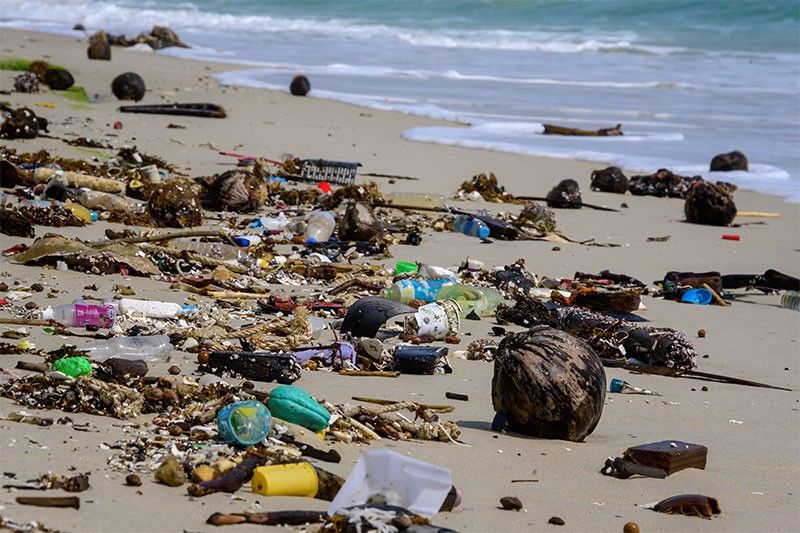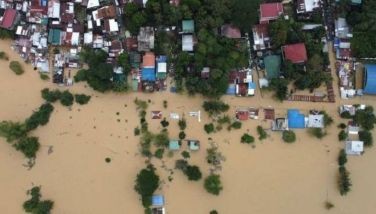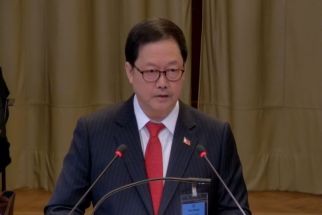Group behind report citing Philippines among top ocean plastic polluters retracted 2015 findings

MANILA, Philippines — Nearly seven years after publication, Ocean Conservancy retracted its ocean plastic pollution report on July 10 for propagating a “misguided and harmful narrative around ocean plastic pollution,” with environmental groups calling it a long-overdue apology.
The “Stemming the Tide” report was behind the oft-cited finding that the Philippines was the world’s third largest source of plastic leaking into the ocean. The report also claimed that five Asian countries, namely China, Indonesia, the Philippines, Thailand and Vietnam, contribute over half of the plastics that end up in the seas.
“The [Ocean Conservancy] report not only harmed the five countries wrongfully blamed for plastic pollution but misled for years governments and the public into thinking that burning plastic waste was a solution to the problem,” said Froilan Grate, regional director of the Global Alliance for Incinerator Alternatives (GAIA) - Asia Pacific.
While environmentalists agreed with the global deluge of plastic waste, they said the report “completely disregarded” the overproduction of plastic and plastic waste exports from Global North countries that even the United States-based organization Ocean Conservancy now agreed with.
“We created a narrative about who is responsible for the ocean plastic pollution crisis – one that failed to acknowledge the outsized role that developed countries, especially the United States, have played and continue to play in generating and exporting plastic waste to this very region,” Ocean Conservancy said.
According to Break Free From Plastic’s 2021 global brand audit report, multinational companies Coca-Cola and PepsiCo were ranked as the world’s top plastic polluters for the fourth consecutive year.
Ocean Conservancy said that their report erred in focusing “solely on minimizing the amount of plastics entering the ocean.”
The nonprofit group also apologized for its report’s framing and “unequivocally rescind” any direct or indirect endorsement of incineration as a solution to ocean plastic pollution.
Impact on waste-to-energy bills
As Ocean Conservancy rescinded its report, which provided strong backing for proposed measures on waste-to-energy incineration, environmental groups are urging lawmakers to reconsider their stances.
“We ask our government officials and lawmakers to rethink their own positions and undo measures that have terribly weakened the ban on waste incineration,” said Aileen Lucero, national coordinator of the EcoWaste Coalition.
Since 2020, bills have been lobbied in Congress to institutionalize waste-to-energy (WTE) technologies and to remove the country-wide ban on incineration.
The House of Representatives approved on the third and final reading House Bill 7829, or the “Waste Treatment Technology Act” in November 2020. The bill greenlights the use of WTE technology – including incineration – provided that it does not generate poisonous gases.
If signed into law, the bill would repeal Section 20 of the Clean Air Act that bans large-scale incineration in the Philippines.
Senate Bill 1789 or the “Waste-to-Energy Act”, also allows incineration with the same caveat that these technologies would not emit toxic fumes. The Senate bill is pending second reading.
But environment and health advocates have since cautioned about the effect of waste-to-energy incinerators on increased carbon emissions and the likelihood of health problems.
For every ton of waste incinerated, an average of around 1 ton of carbon dioxide is released, said Lee Bell, mercury policy advisor for the International Pollution Elimination Network.
Citing scientific studies, healthcare waste management expert Jorge Emmanuel also said that people living within at most a 10-kilometer radius of incinerators were linked with health problems such as leukemia, sarcoma and lymphoma.
To illustrate, if a waste incinerator were placed in the Payatas dumpsite, affected areas would reach parts of Rizal, Caloocan, Quezon City and Antipolo, added Emmanuel.
GAIA and other members of the #BreakFreeFromPlastic movement are currently in talks with Ocean Conservancy in identifying ways “to mitigate the harm caused” by the almost seven-year-old report.
“This apology is an invitation to hear the voices and concerns of communities and groups in the Asia Pacific region who have been disproportionately impacted by this framing, and for whom this issue is very personal,” Grate said.
Ocean Conservancy’s 2015 report has since been taken down online.
- Latest

























